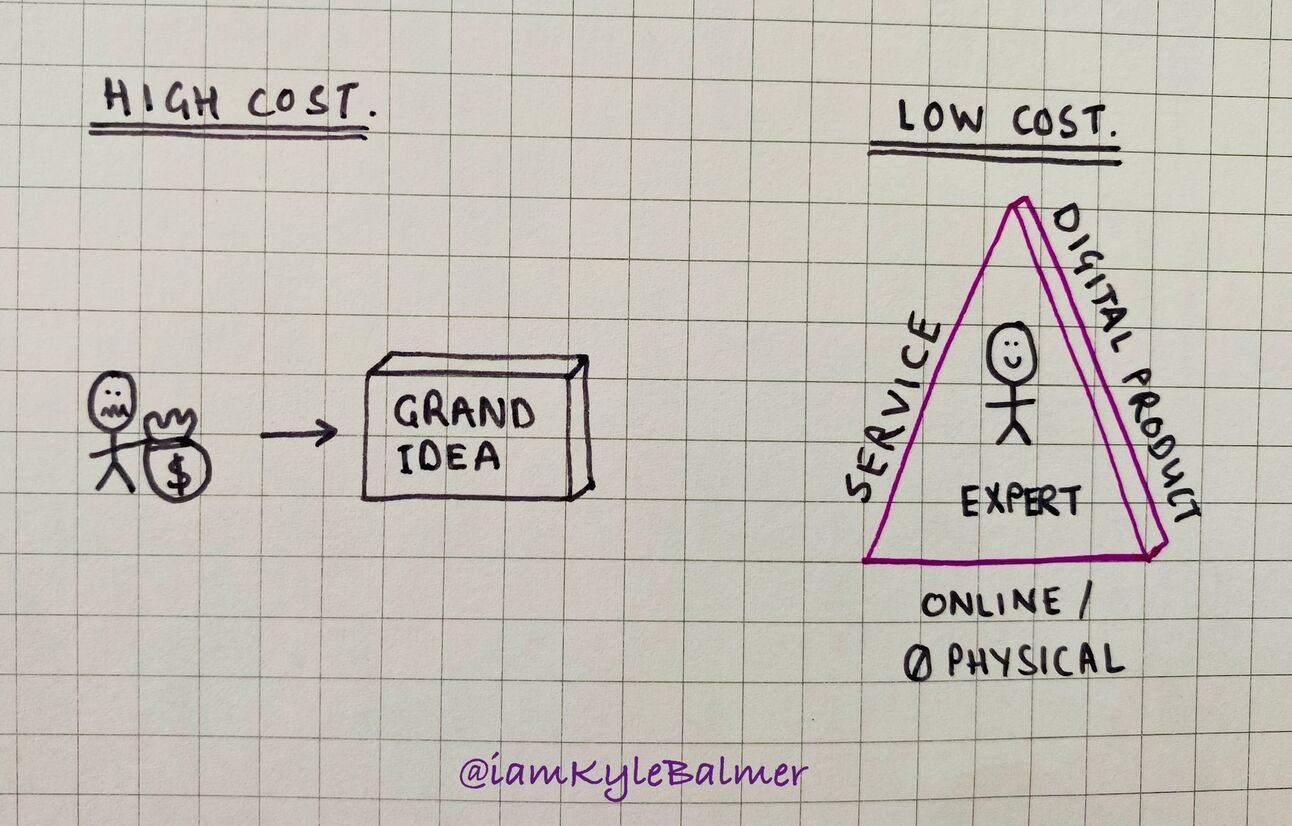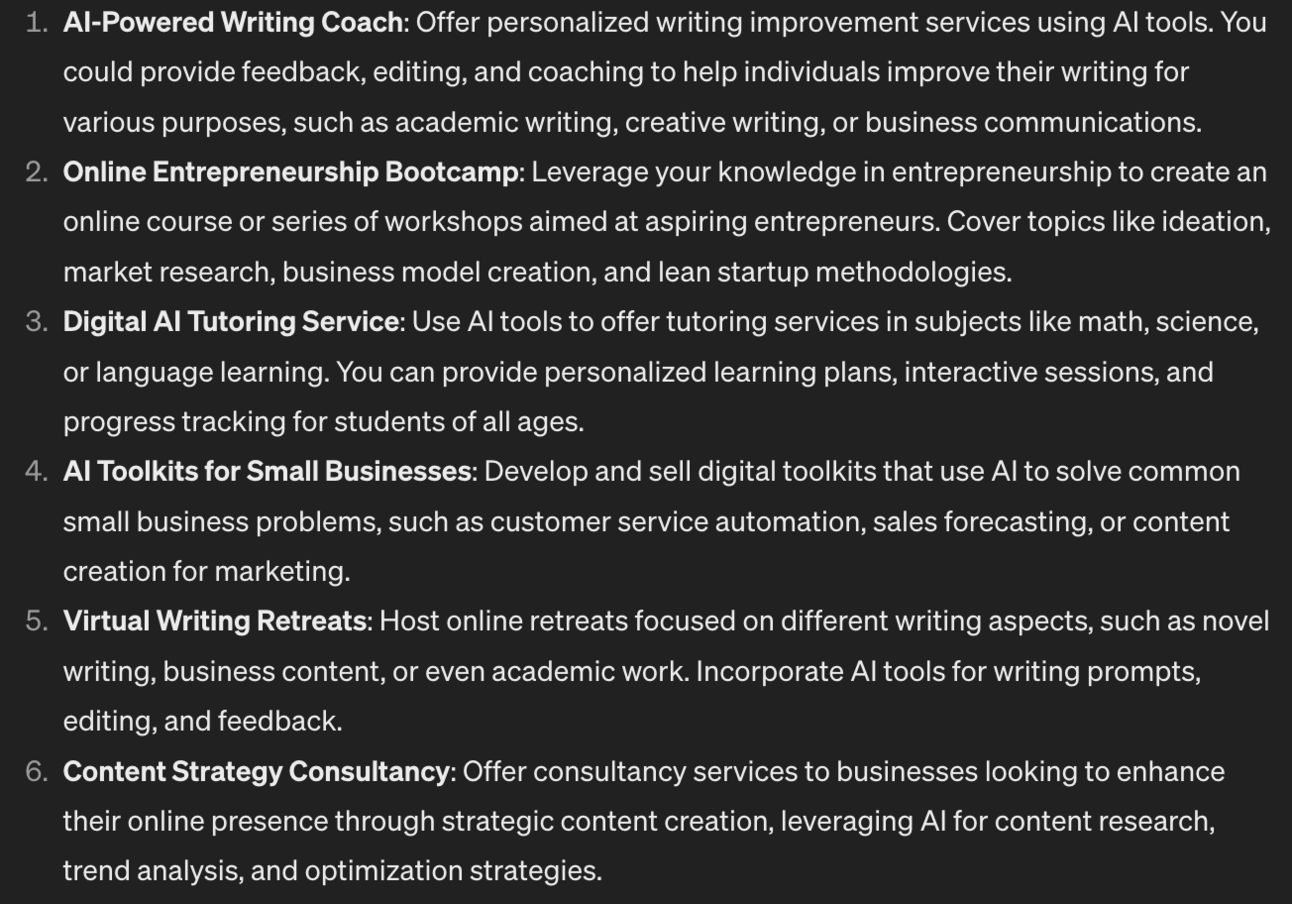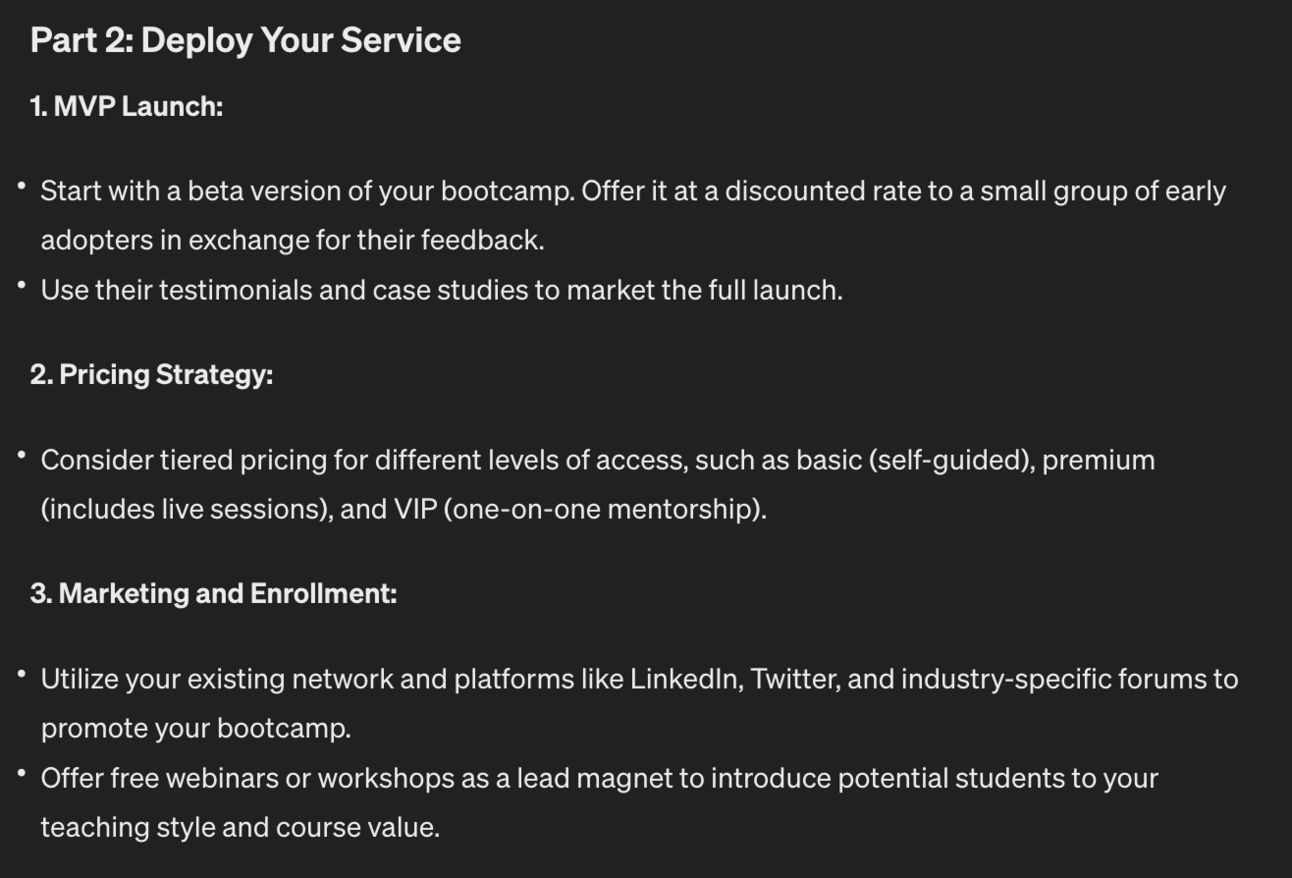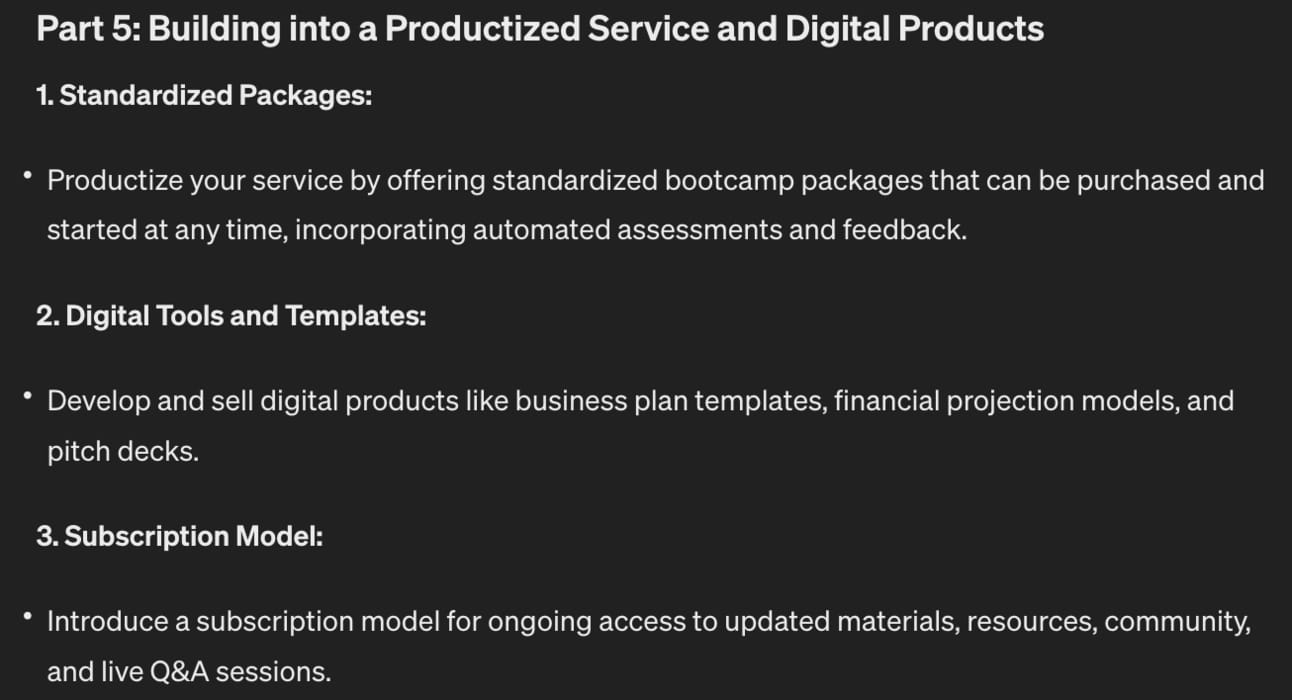Introduction
Welcome to the first Futurpreneur Forge issue – our newly revamped Premium only newsletter.
If you are on the free newsletter heads up this is the last Tuesday issue you’ll receive – we’re sending this last one to make sure everyone knows about the change. From now it’ll just be Monday and Saturday.
If you are joining us it’s $49/year this week only.
For those who are joining us in the Forge welcome! Thank you to the hundreds who have joined us so far. We’re so excited!
There are going to be a lot of changes moving forward making these issues much more valuable and actionable for you. Think: graphics, videos, screen-shares, checklists, more prompts etc.
This shift allows me to double down on making these guides absolutely kick-ass. I’ll be regularly polling you find out what you want more of and less of so I can better refine it for you specifically.
Right, let’s continue this week’s guide on a subject near and dear to my heart -starting a business with no cash!
In this guide we’ll cover:
- Part 1: Best time to Start
- Part 2: Low Cost Business Ideas
- Part 3: Earn Immediately Whilst Validating
- Part 4: Grow Without Investment
- Part 5: Raising Money with Proven ROI
Let’s get started:
Low Cost Business Ideas
Summary
- Low Cost Business Ideas
- Your idea should be a combination of something you are skilled at (good enough to compete), something you enjoy (willingness to work on it) and there exists a market for it.
- The initial idea should require no capital, no team and be digital not physical.
- Service first ideally. This puts you in contact with customers immediately which provides immediate revenue and more importantly learning. Freelance if you need to. Then shift to a productised service then to a product once the value to the customer is known.
When starting a first business it’s important to choose an idea that is as low cost as possible.
Why? Because if/when it doesn’t work we are ready to go again.
Too many people plough their savings into starting a business – think of the guy who starts the restaurants of his dreams using 10 years of hard earned savings. Only for it to not work.
That’s a situation we want to avoid.
Because, and here’s the hard truth, most first business ideas will not work.
And if they do work then it’ll be because they’ve been pivoted and adapted to make them work. Often what you end up with is very different to the initial idea! And that’s fine.
Because of all this we want our first business to be low cost so we can i) start with nothing, ii) adapt easily if needed and iii) go again if the first idea doesn’t work out.
My recommendations

For first businesses I recommend:
- a service to start
- converting into digital products over time
- online/digital delivery
- nothing physical
- expertise based
The basic play here to to find an area of your own expertise where you can provide massive value to customers.
You start by packaging this expertise up into a service that you yourself deliver.
By doing so you get in contact with and learn from customers (more on this in Part 3) whilst earning money.
You then convert the service into digital products. Digital products become your bread and butter and early offers. Your service offer becomes your premium offer.
Here’s a prompt that’ll pull all this together for you:
Act as a business strategist
Help me define a business idea.
It should require no capital, no team and be digital not physical.
My expertise are: [list out skills]
First give me a list of business ideas and ask me to select. Then outline that idea in full. It will be a service business that I later build into a productised service and digital products.If I plug in “teaching, writing, entrepreneurship, ai” as skills the prompt will first output some basic ideas:

I can then specify which it should outline in detail. For example I like the idea of 2.
This will cause ChatGPT to outline the idea according to the limitations we’ve discussed. It’ll be designed for zero cost, no team, digital not physical and starting with a service.
ChatGPT will take the basic idea and flesh it out using the framework instructions I’ve provided.
For example it’ll design first the basic service offering:

before later delving into how you’ll upgrade the business into products:

Again the purpose here is to start with a service and then from there build digital products.
We do this because by working with people 1 to 1 or in small groups we get an idea of what their exact problems and challenges are. This in turn let’s us refine our offer based on what they are saying, not on what we think. Simple but extremely important.
Now that we have a basic idea in place in the next Part I’ll cover how we launch to both earn and learn.